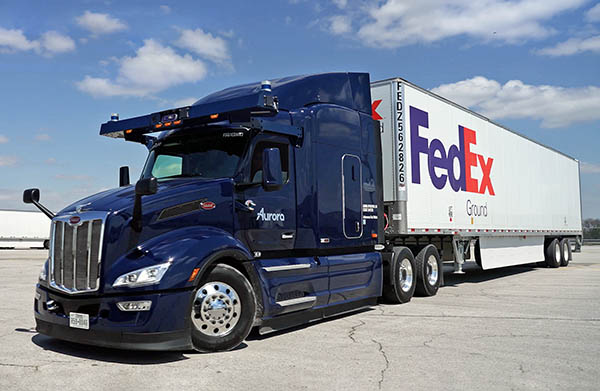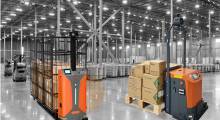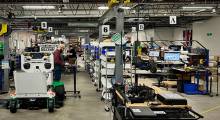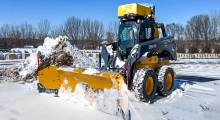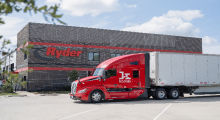Aurora Innovation Inc. and FedEx Corp. yesterday announced the expansion of their pilot program to autonomously move FedEx shipments on an additional commercial lane in Texas.
“Some time ago, I was asked why the general public should care about autonomous trucking. This is why,” stated Sterling Anderson, co-founder and chief product officer of Aurora. “In six months of working with FedEx, we’ve safely, reliably, and efficiently transported packages for tens of thousands of FedEx customers.”
“This lane expansion came ahead of schedule, and we’re delighted to continue building the future of trucking with one of the country’s biggest and most important transportation companies,” he added.
Pittsburgh-based Aurora said its Aurora Driver is a self-driving system designed to operate multiple vehicle types, from freight-hauling semi-trucks to ride-hailing passenger vehicles. The technology underpins Aurora Horizon and Aurora Connect, the company's driver-as-a-service products for trucking and ride-hailing.
Aurora, which entered into a $1 billion special-purpose acquisition deal in July 2021, has partners across the transportation ecosystem, including FedEx and PACCAR, Volvo Trucks, Uber Freight, Toyota, U.S. Xpress, Werner, and Covenant. Its announcement came after a week of trucking partnerships.
Aurora marks autonomous truck momentum
In March 2022, Aurora's next-generation autonomous trucks – based on the new Peterbilt 579 – began to transport FedEx shipments between Aurora’s new terminals in Fort Worth and El Paso. Aurora is making the 600-mi. trip on a weekly basis with safety drivers on board and said it expects to increase the frequency of trips in the coming months.
In addition, Aurora continues to move shipments for FedEx between Aurora’s South Dallas terminal and its new Houston terminal on a daily basis. The companies also touted the following accomplishments:
- Since the commercial pilot began in September 2021, Aurora’s deliveries of FedEx shipments between Dallas and Houston have been 100% on time.
- With each trip, the Aurora Driver is providing thousands of FedEx customers with packages that were autonomously transported.
- Aurora moves trailers for FedEx during various weather conditions and all hours of the day and night, optimizing fleet utilization.
- The company completed daily hauls during the 2021 peak holiday season, the busiest time of year for FedEx.
- To date, the partners have completed 60,000 miles with zero safety incidents.
Aurora said its performance in this pilot “demonstrates the value proposition autonomous trucking offers for transportation and logistics providers as the company works toward the commercial launch of its autonomous trucks.”
“In light of the headwinds facing the logistics industry – ranging from increasing demand for the quick transportation of shipments to a challenging labor market – the Aurora Driver, when integrated into existing linehaul operations, has potential to provide a reliable, efficient linehaul solution to help address such industry concerns,” the company said.
FedEx looks to more innovation
“Innovation is in our DNA – our culture drives us to think radically and differently, finding new ways to use technology to enhance safety, improve our operations, empower our team members and help our customers succeed,” said Rebecca Yeung, corporate vice president for operations science and advanced technology at FedEx Corp. “Aurora has been a like-minded collaborator, helping us learn from and grow our autonomous trucking solutions.”
“We look forward to our continued work together as we test further integration of autonomous technology into our operations to build a collaborative, robust network of solutions to respond to growing customer demand,” she said.
Yeung and Anderson spoke about how autonomous trucks can transform logistics and the movement of goods at the TechCrunch Mobility Summit.
Memphis, Tenn.-based FedEx has annual revenue of $92 billion and nearly 600,000 team members. The company offers a portfolio of transportation, e-commerce, and business services and has a stated goal of achieving carbon-neutral operations by 2040.
Article topics
Email Sign Up



